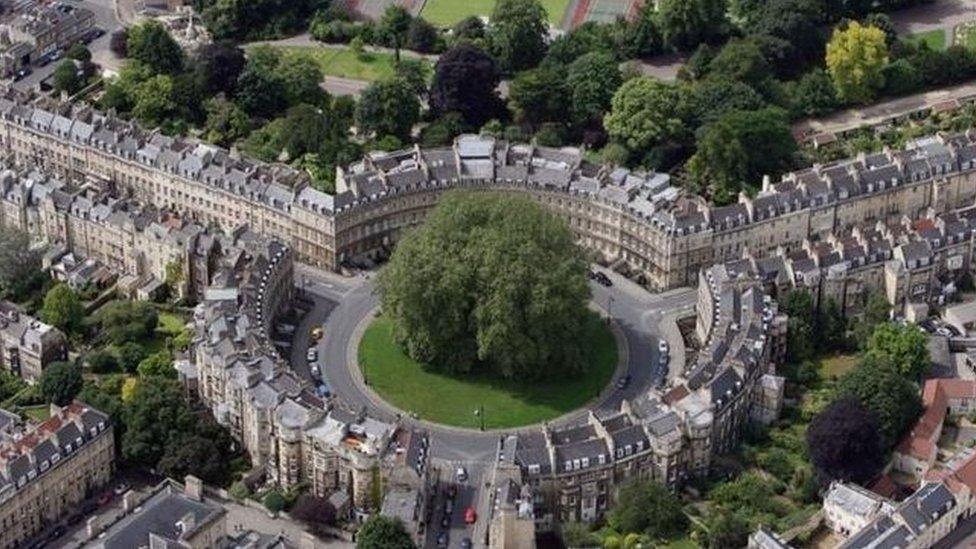Bath: The UNESCO World Heritage Site with sky-high house prices
- Published
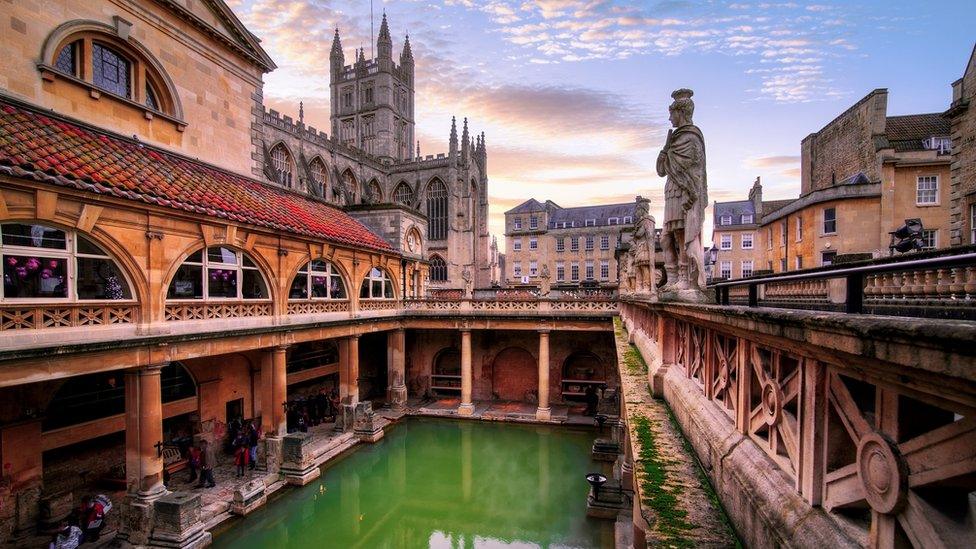
The city's Roman Baths and other heritage makes it popular with international tourists
What is it like trying to buy property in a city where prices are some of the highest in the country, and how does it affect the employment market?
Bath was joint third in a list of least-affordable cities in the UK published this week. The city, a UNESCO World Heritage site because of its Georgian architecture and Roman remains, is one of the most-visited places in the UK.
So what are the factors that mean Bath property comes with such a hefty price tag, and how does that impact on the people who live and work there?
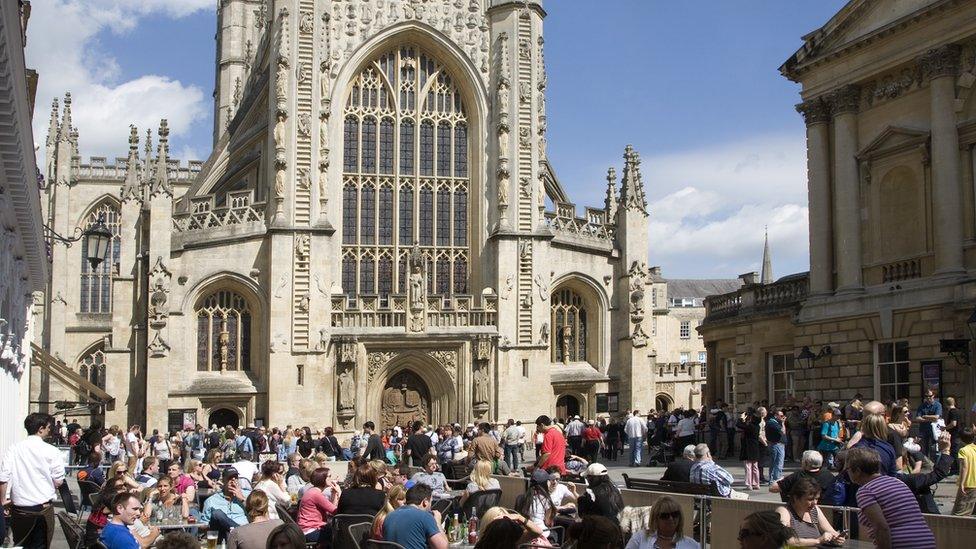
Sites such as Bath Abbey are busy all year round, as can be seen in this image taken before the pandemic
According to the government's house price index, the average cost of a home in England was £271,434 in May.
In the same month in Bath and North East Somerset (BANES), the average price was at £368,151.
And those prices affect people getting on the property ladder for the first time. The average price a first-time buyer is paying for a homes in BANES is close to £320,000.
But those who are familiar with the city will not be surprised, as it is a combination of tourism hotspot and cultural hotbed.
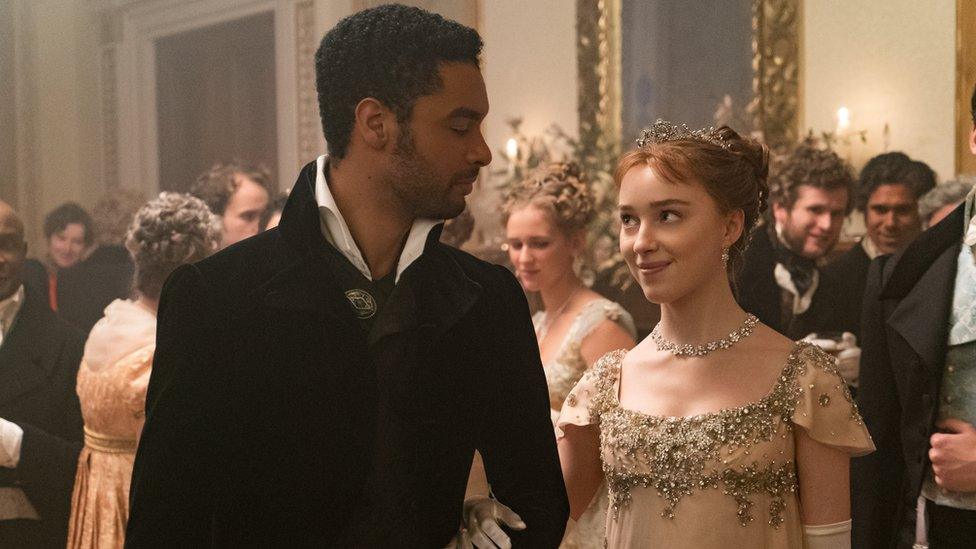
Netflix series Bridgerton was partly filmed in the city
Tourism guide Lonely Planet summed it up well with this line: "In a nation packed with pretty cities, Bath still stands out as the belle of the ball."
It was the Romans who first saw it as a desirable spot, taking advantage of the area's hot springs. Many hundreds of years later, industrialist Ralph Allen and architects John Wood the Elder and John Wood the Younger oversaw the city's transformation into a Georgian gem.
The UNESCO criteria for ranking Bath a World Heritage Site, external talks of the "beauty" of the city's architecture, the way it sits in a green valley with hillsides visible from the centre, and the way the terraces and avenues were carefully designed to complement each other.
And it is those handsome townhouses and sweeping crescents, along with traces of the Roman past, that bring in visitors by the coachload.
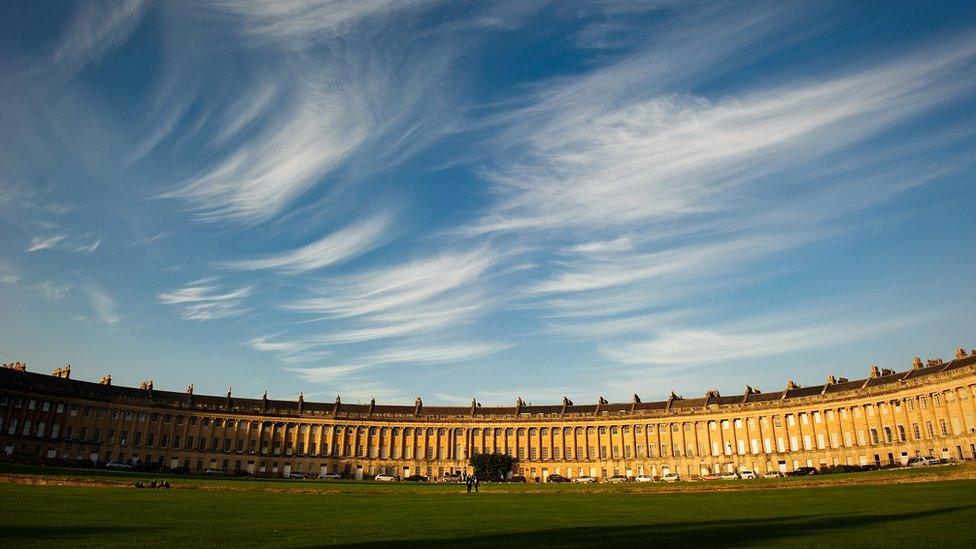
The Royal Crescent is one of Bath's best-known landmarks
Tourism West's figures for 2019, the last full year of tourism before the pandemic, showed Bath welcomed more than five million visitors, day trippers and those staying overnight, making it the 11th most visited UK town or city when it comes to international visitors.
In total, those people contribute nearly £460m to the local economy.
The filming of recent shows such as Netlfix hit Bridgerton in the city is only likely to add to its global reputation.
Its Christmas Market, due to return later this year after having a year off due to Covid-19, attracts about 400,000 people to the city centre.
And it's not just tourists who are attracted to Bath. In 2017 it was reported the city was the number one destination, external for people selling homes in London and moving out to other regions, despite the high prices.
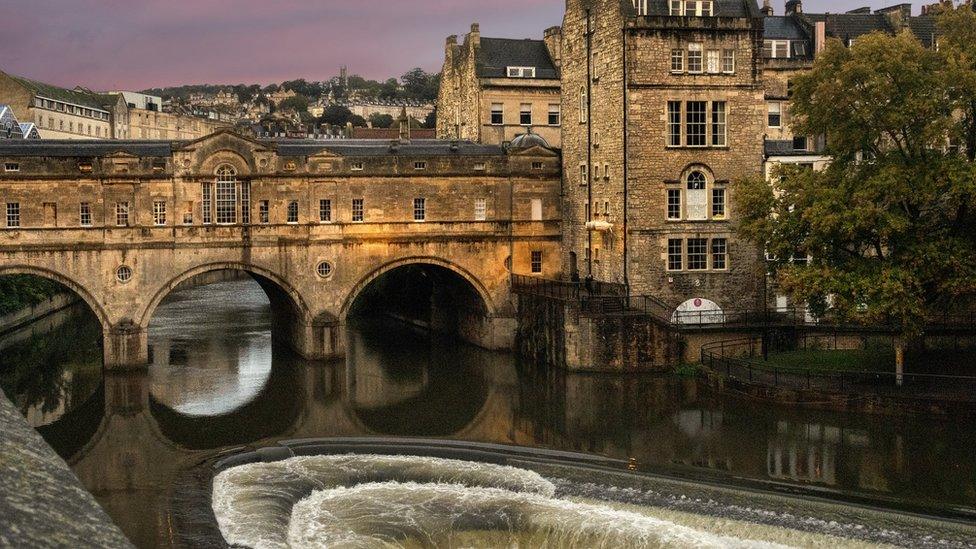
Bath is home to plenty of well-preserved Georgian architecture
Earlier this year, neighbouring Bristol was named one of the top destinations for those leaving the capital as Covid-19 made people consider a change of lifestyle.
Ian Bell, executive director of Bath Chamber of Commerce and Initiative in B&NES, said: "We have recognised for years that high house prices have played a part in making it more difficult to attract new staff to work in the city.
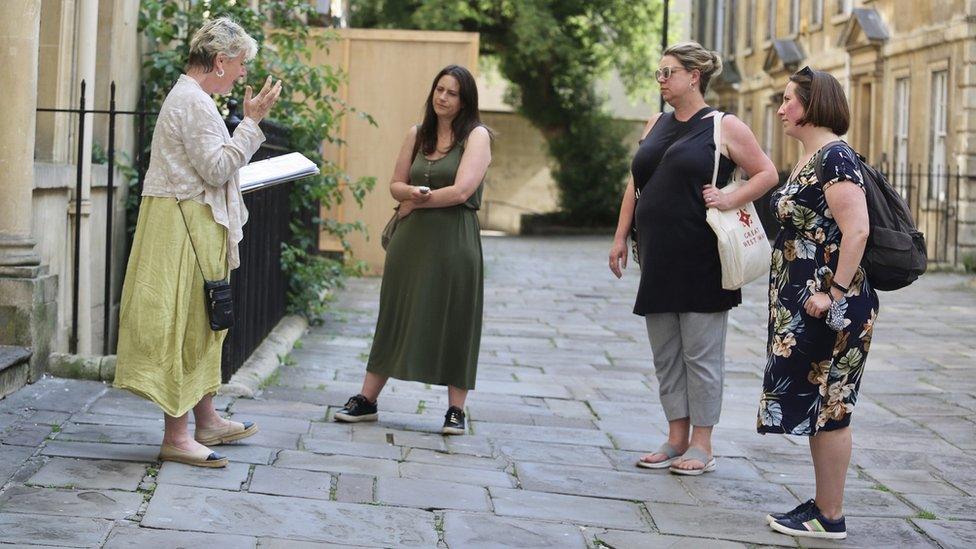
Local theatre group Show of Strength runs a Frankenstein in Bath walking tour. Mary Shelley wrote much of the novel while living in Bath
"We did some work with the student unions and found one of the reasons students gave for not staying to live and work in the area after graduation was the cost of accommodation.
"On the other hand people are still willing to pay the premium price to enjoy the lifestyle, especially those moving out of London."
'Victim of its own success'
Mr Bell said the knock-on effect of high house prices in the city itself was staff of local businesses having to live further away, meaning they had to commute by car, therefore increasing congestion.
"We have regularly made the case for an increase in housing supply in order to help contain prices," he added.
"Whilst that's a real challenge in a World Heritage City we still believe there are some great development opportunities on the edge of the city which could make a difference.
"In some ways Bath is a victim of its own success and businesses know they have to factor housing costs in when it comes to operating in one of the most desirable locations in the country."
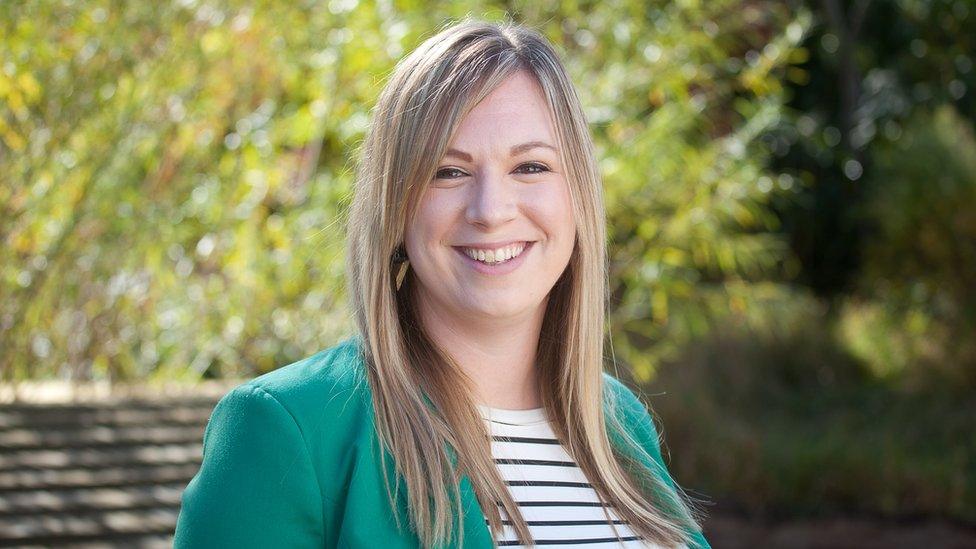
Hannah Viney said: "Bath is a fairly compact city which means wherever you are searching for a property, there are going to be factors which drive house prices or competitive bidding sky high"
Hannah Viney, 32, who runs her own PR and marketing business, is renting while looking at what the Bath property market does post-lockdown.
She said because her income can fluctuate, there are "so many more hoops" to jump through compared to those with settled salaries, but she remains determined to find a place in the city.
"It's the perfect mix of culture and heritage," she said. "It's got a beautiful city centre and rolling hills to retreat to, plus it's close to Bristol which has a more cosmopolitan vibe.
"I'm spending a lot of time keeping my eye on the properties that are coming up, what space and floorplans are common at different price points and seeing how fast properties move now, so that when I'm in a position to make an offer I know the best plan of action.
"Bidding wars are exceptionally common particularly with the old-fashioned cottages that are my personal preference, with gazumping all too familiar.
"You have to harden your heart and not get too attached to the vision of you in a particular house too soon otherwise you may get very disappointed. Don't start picturing which corner the Christmas tree is going to fit in!"
'London money'
Ben Jacob-Smith, managing director of FreeMoov Property Services, said it was Bath's mixture of history, architecture and proximity to the countryside that made it so desirable, along with strong transport links to London.
"There has been a recent influx of 'London money' to the area following post-lockdown life re-evaluations as the 'race for space' becomes a higher priority," he said.
"With the average Bath house price £100k less than in the capital, you can get a lot more for your money.
"The area has benefited with a number of high-end, new-build developments which although are necessary, I'd argue there equally needs to be a focus on the provision of affordable housing to avoid the risk of pricing out locals or those wanting to join the property ladder in the region for the first time."

Follow BBC West on Facebook, external, Twitter, external and Instagram, external. Send your story ideas to: bristol@bbc.co.uk , external
- Published4 August 2021
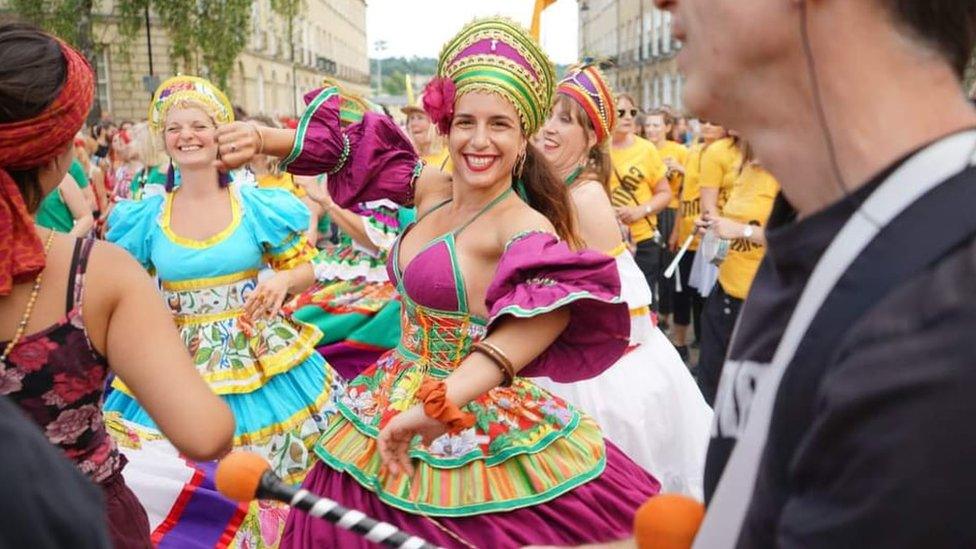
- Published9 June 2021

- Published4 February 2021

- Published21 August 2020
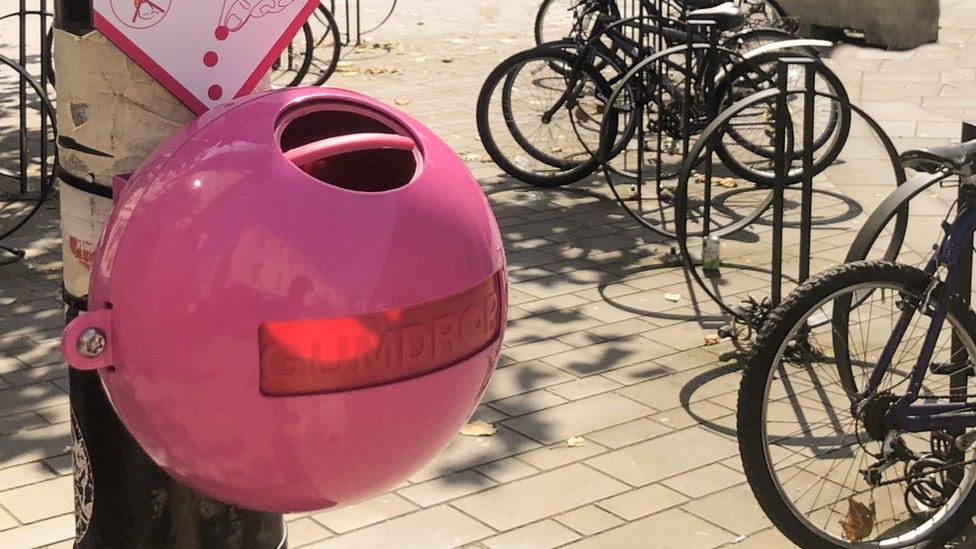
- Published4 April 2018
